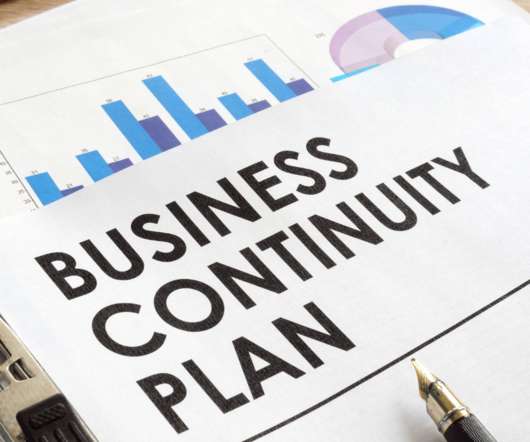From chaos to control: building a business continuity plan that works
SRM
MAY 28, 2025
To recap: a Business Continuity Plan (BCP) is a strategy put in place to help a business recover from disruption, whether this takes the form of a cyberattack, natural disaster, or geopolitical conflict. Why you need a business continuity plan Every business needs a strong BCP, especially in these uncertain times.












Let's personalize your content